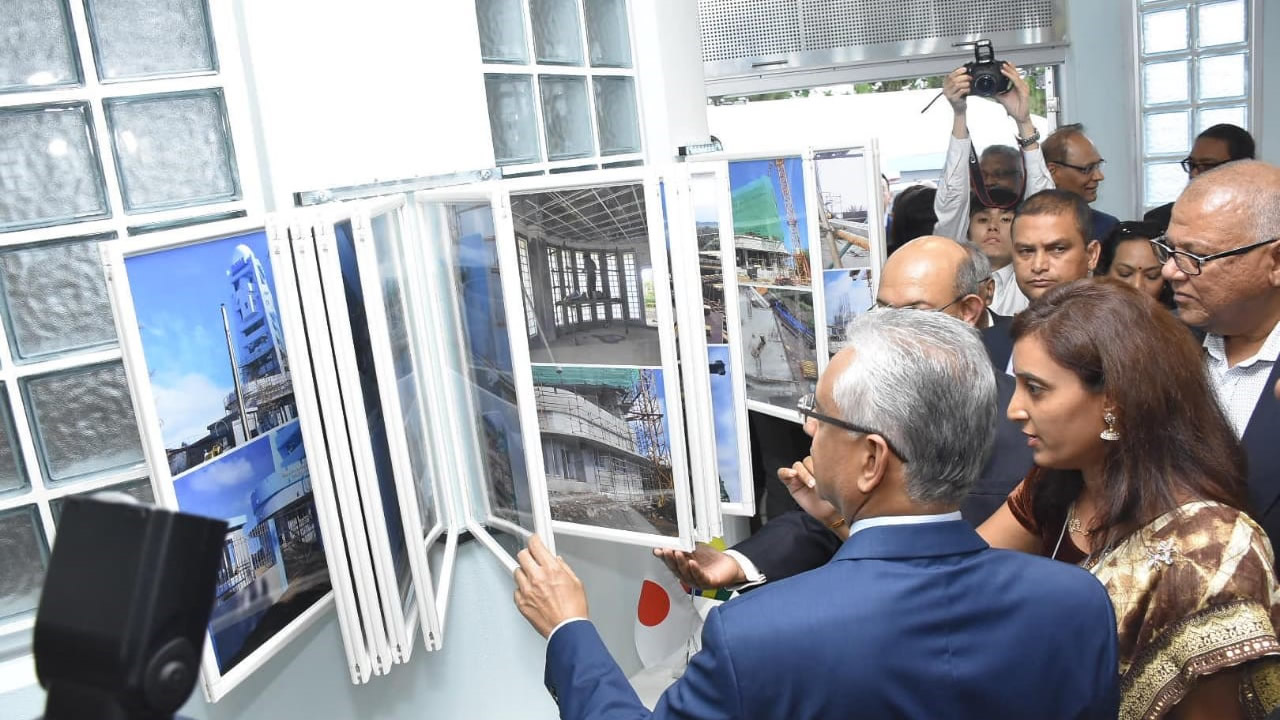
The Doppler Radar Weather Observation Station (DRWOS), a first of its kind in the Indian Ocean region, is an instrumental and sophisticated system that is of utmost necessity for Small Island States such as Mauritius. It is a matter of pride for the country to join the league of nations equipped with state-of-the-art technology for weather observation.
The Prime Minister, Minister of Home Affairs, External Communications and National Development Unit, Minister of Finance and Economic Development, Mr Pravind Kumar Jugnauth, made this statement at the inauguration of the DRWOS in Trou aux Cerfs. The DRWOS has been constructed to the tune of Rs 537 million, through a grant aid of Rs 437 million from the Government of Japan, with a contribution of Rs 100 million from the Government of Mauritius
The event was attended by the Minister of Social Security, National Solidarity, and Environment and Sustainable Development, Mr Etienne Sinatambou, the Ambassador of Japan to Mauritius, Mr Yoshiharu Kato, several ministers, and other eminent personalities.
In his address, Prime Minister Jugnauth highlighted that the DRWOS will act as a weather observation tool to enhance the capability of the Mauritius Meteorological Services (MMS) to track cyclones with greater accuracy as well as to strengthen the capacity of meteorologists in their forecast of heavy torrential rains.
The operation of the Doppler radar system, he underlined, comes at an opportune time in the face of climate variability, which is becoming a serious concern for Mauritius with significant increase over the last two decades in the frequency of extreme weather events such as heavy rains and tropical cyclones in the country.
He further emphasised that natural hydro-meteorological hazards cannot be prevented but their impacts can be mitigated, adding that the Doppler radar will therefore contribute significantly towards the provision of timely and more accurate warnings.
Speaking about the vulnerability of Mauritius as regards calamities, Prime Minister Jugnauth referred to the World Risk Report 2018, which ranks the country on the 16th position in terms of highest risk index and 7th most exposed to natural hazards. He pointed out that as a small vulnerable developing state, the country is committed to rise to the challenges of climate change. Significant investments, he said, are required as well as the assistance of development partners is necessary to support Government’s domestic and international commitments.
Lauding the state-of-the-art features of the system, the Prime Minister underlined that as compared to satellite imageries and other current methods, the Doppler radar has the capacity of monitoring tropical wind cyclone velocity of 270 km /h in a 200 km radius and precipitation intensity of greater than 1 mm/h within 450 km radius. He highlighted that it will also provide torrential rain information indicating regions which has reached or exceeded 100 mm within the last 12 hours. Also, it will enable the MMS to identify localities where it is about to rain so that necessary actions are deployed on time. He also observed that in addition to providing increased security for the citizens, it will improve safe navigation for aircraft landing and taking off.
As for Ambassador Kato, he spoke of Japan’s engagement for the construction works of this project through the Japan International Cooperation Agency. He emphasised that the contractors, Marubeni Corporation and Shimizu Corporation of Japan and the meteorological experts from Japan Meteorological services have extensively been engaged in the realisation of this project. The Japanese Ambassador reiterated that he will continue to work diligently in other cooperation avenues so as to bring the people of both countries closer.
 J'aime
J'aime














